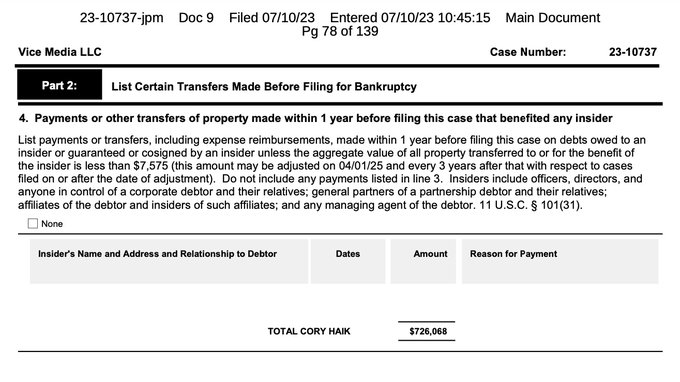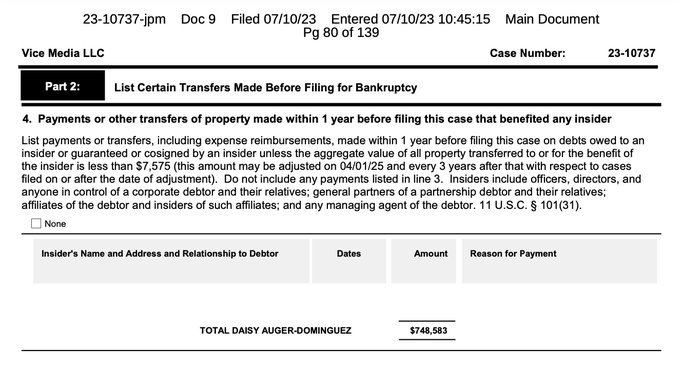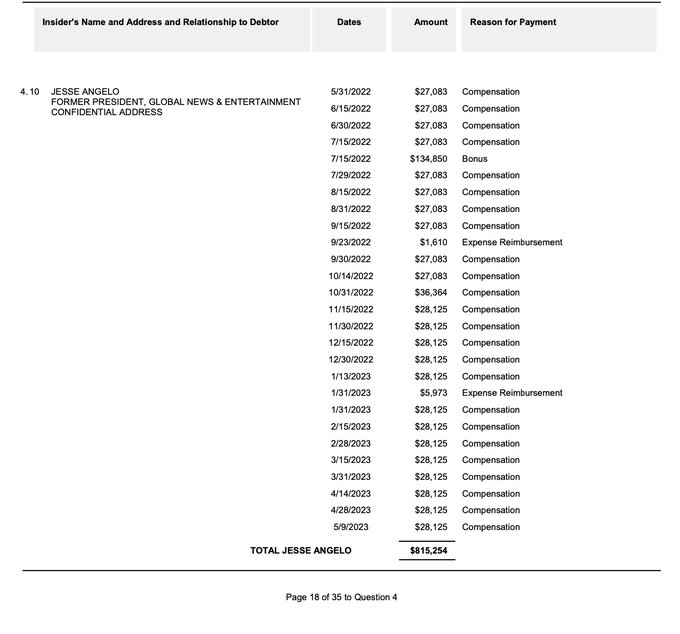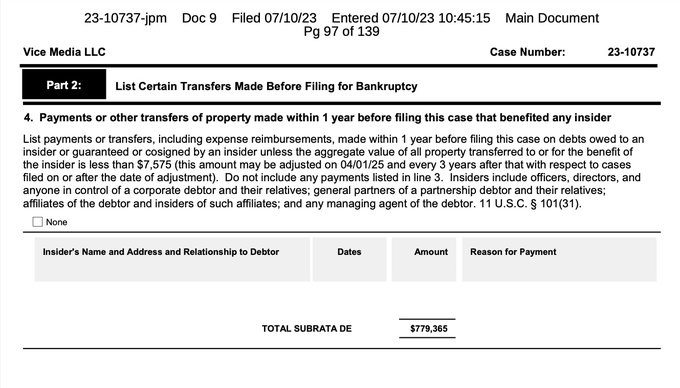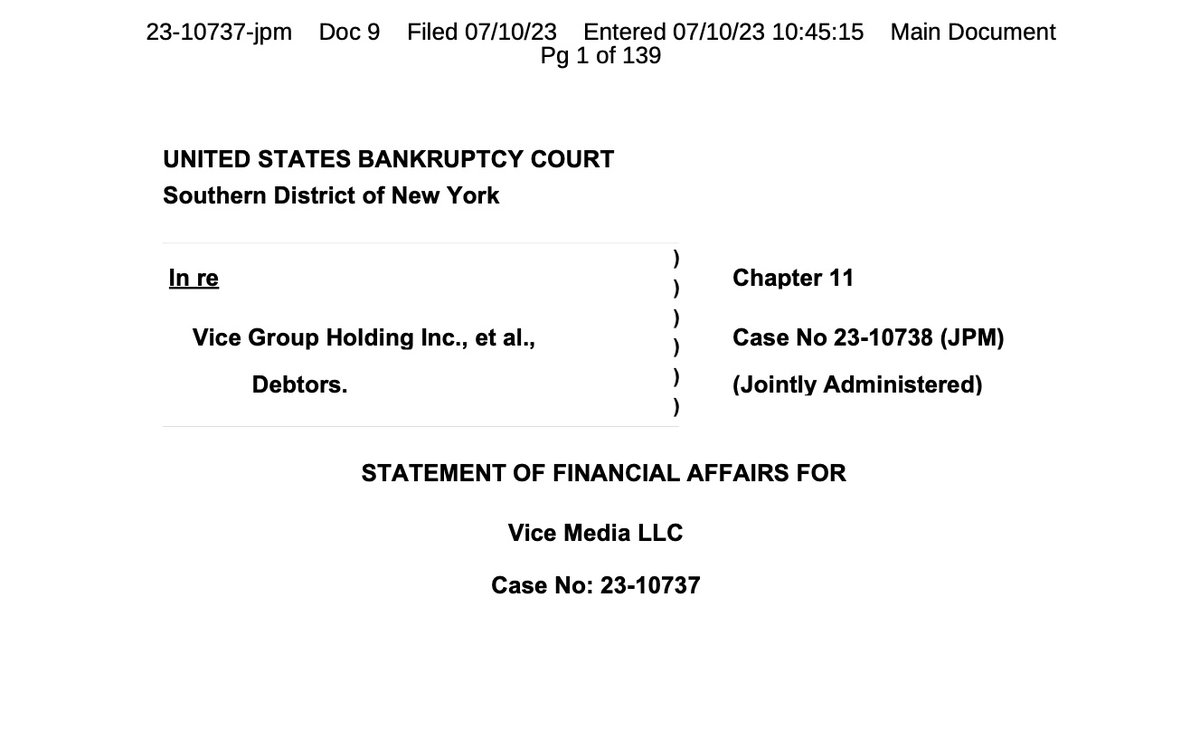A lot of free things are going to stop being free very soon, because venture capitalists have stopped shoveling money into pockets on the eventual promise of profitability.
It's ok to be angry about capitalism
- Thread starter XsjadoBlaydette
- Start date
I'm gonna repeat my comment on the video itself: If you don't have someone minding the till, then you wind up in a situation like Star Citizen, where the design document is an ever-expanding list of "wouldn't it be cool if" and the release date moves faster than the spaceships.
Effectively Star Citizen already is released (and raking in about $100 million a year).I'm gonna repeat my comment on the video itself: If you don't have someone minding the till, then you wind up in a situation like Star Citizen, where the design document is an ever-expanding list of "wouldn't it be cool if" and the release date moves faster than the spaceships.
That's the thing about early access and constant post-release patching/expansion: "official release date" is increasingly meaningless. It's more a relatively arbitrary mark in the sand when the dev team (or if the devs are unlucky, the publisher) decides that they are happy with the game's overall playability and crank out the main marketing campaign, not when the game is finished. This is especially true of sandbox games where there doesn't need to be a defined end point.
You could consider something like World Of Tanks, which became a huge online game whist technically in its 8 years as beta. When it finally hit v1.0, it was barely a transition, because it had already been functioning as a full release for years. Whilst Star Citizen is a long, long way from being even at that point with a huge amount more content intended, the point remains that a supposed "official release date" is arguably not even necessary.
World of Tanks had no up front buy in, so I suspect the rules are a little different.Effectively Star Citizen already is released (and raking in about $100 million a year).
That's the thing about early access and constant post-release patching/expansion: "official release date" is increasingly meaningless. It's more a relatively arbitrary mark in the sand when the dev team (or if the devs are unlucky, the publisher) decides that they are happy with the game's overall playability and crank out the main marketing campaign, not when the game is finished. This is especially true of sandbox games where there doesn't need to be a defined end point.
You could consider something like World Of Tanks, which became a huge online game whist technically in its 8 years as beta. When it finally hit v1.0, it was barely a transition, because it had already been functioning as a full release for years. Whilst Star Citizen is a long, long way from being even at that point with a huge amount more content intended, the point remains that a supposed "official release date" is arguably not even necessary.
How different, though? Perhaps a lawyer can explain, but I kind of suspect the difference is in practice trivial: the customer pays, agrees to a contract which says they can play what's there, with an expectation (but no guarantee) of future development.World of Tanks had no up front buy in, so I suspect the rules are a little different.
Where I suspect an official release may be important is allowing the company to eventually demand more money for additional content (expansions). However, I'm not even sure of that as we already know that pre-release certain forms of content can be locked behind supplementary payments.
I think you generally need a producer role, certainly. You need someone whose job is to specifically to manage the project and be the voice of pragmatism, but I would say the ideal person for that role is not corporate. I don't think Star Citizen needed someone to say "release the game in 6 months or we cut your funding" because whatever they had still wouldn't have been releasable.I'm gonna repeat my comment on the video itself: If you don't have someone minding the till, then you wind up in a situation like Star Citizen, where the design document is an ever-expanding list of "wouldn't it be cool if" and the release date moves faster than the spaceships.
What Star Citizen needed is someone to say "Chris, we can't use Cryengine. I know it looks pretty and you want everyone to be blown away by how shiny the spaceships are, but it can't do what you want. Use an engine that can."
- Nov 27, 2009
- 5,792
- 712
- 118
- Country
- The Dreamlands
- Gender
- Lose 1d20 sanity points.
I mean I don't need permission to be angry at Capitalism, I've been angry at it for years, literally got kicked out of a communist party for advocating for appropriating water from the corporations, but you know, apparently that's "terrorism" according to the law, fucking bullshit.
I disagree, sometimes - especially in cases as indulgent as Star Citizen - people need to feel the branch creak beneath them. Money and time are not infinite and no amount of artistic vision will make it so.I think you generally need a producer role, certainly. You need someone whose job is to specifically to manage the project and be the voice of pragmatism, but I would say the ideal person for that role is not corporate. I don't think Star Citizen needed someone to say "release the game in 6 months or we cut your funding" because whatever they had still wouldn't have been releasable.
I have a feeling that is a piece of technical advice outside the remit of a producer, but they would also have needed to hear that too.What Star Citizen needed is someone to say "Chris, we can't use Cryengine. I know it looks pretty and you want everyone to be blown away by how shiny the spaceships are, but it can't do what you want. Use an engine that can."

Hollywood Studios’ WGA Strike Endgame Is To Let Writers Go Broke Before Resuming Talks In Fall
The 2023 scribes' strike could go a lot longer than the 2008 labor action if executives have their way

Whilst we're on this, from the UK:

 www.theguardian.com
www.theguardian.com
So, as some backstory here, the water utilities in the UK were privatised in the 1980s. There is of course no real market: people cannot choose who provides their water. Each UK water company is a geographical monopoly. The whole system was overseen by a regulator. For a number of years, this worked okay. Bills were reasonable, the quality of river and seawater improved, although there were lingering problems with low quality infrastructure (leaking supply pipes and underperforming sewer systems).
However, eventually private equity got involved and of course, private equity doesn't give a shit except to reap as much profits as possible. They saw a money-making system and decided to take it for all it's worth. The regulator should have stepped in, but instead was asleep. The water companies started paying massive shareholder dividends and racking up debts to do it (plus of course the additional drain on company resources servicing debt). Infrastructure remained underinvested in. Now, turns out water companies are releasing huge quantities of raw sewage into rivers and beaches, and have been concealing it from the regulator. Infrastructure problems are worse than ever. The largest UK water company, Thames Water, has only just evaded bankruptcy.
So finally people have realised something needs to be done. And the only suggested answer is... customer bills go up, a lot. Most of these parasitic shareholders have already taken their money, sold up and run: they know they can't take too much before they damage the company too badly and wreck its value. And now they now sit on their hoards laughing whilst government and the public are left with the mess.

Thames Water secures extra £750m from shareholders to help stave off nationalisation
Money follows £500m injection in March but troubled utility warns much more future funding needed
So, as some backstory here, the water utilities in the UK were privatised in the 1980s. There is of course no real market: people cannot choose who provides their water. Each UK water company is a geographical monopoly. The whole system was overseen by a regulator. For a number of years, this worked okay. Bills were reasonable, the quality of river and seawater improved, although there were lingering problems with low quality infrastructure (leaking supply pipes and underperforming sewer systems).
However, eventually private equity got involved and of course, private equity doesn't give a shit except to reap as much profits as possible. They saw a money-making system and decided to take it for all it's worth. The regulator should have stepped in, but instead was asleep. The water companies started paying massive shareholder dividends and racking up debts to do it (plus of course the additional drain on company resources servicing debt). Infrastructure remained underinvested in. Now, turns out water companies are releasing huge quantities of raw sewage into rivers and beaches, and have been concealing it from the regulator. Infrastructure problems are worse than ever. The largest UK water company, Thames Water, has only just evaded bankruptcy.
So finally people have realised something needs to be done. And the only suggested answer is... customer bills go up, a lot. Most of these parasitic shareholders have already taken their money, sold up and run: they know they can't take too much before they damage the company too badly and wreck its value. And now they now sit on their hoards laughing whilst government and the public are left with the mess.
It's a nice try and all, but I can't really draw any solid argument out of that video beyond "reward people for innovating and they will tend to innovate". This does not, per se, justify capitalism.
The focus on the humanitarian benefits of capitalism is just an extremely weird argument. Because sure, industrialization along capitalist lines led to the mass production of penicillin. It also led to mass production of mustard gas and machine gun bullets. Industrialization doesn't have and has never had some kind of humanitarian objective, it's just a faster and cheaper way of making stuff.It's a nice try and all, but I can't really draw any solid argument out of that video beyond "reward people for innovating and they will tend to innovate".
The "market efficiency" argument is better covered and contextualized here.
Because yes, ideal markets are "efficient" at setting prices in a way that maximizes total surplus, but real markets are not necessarily ideal (indeed, I think there is a good argument that capitalism has led to many markets becoming less and less ideal over time) and in the real world, the question of who ends up with the surplus is often more important than maximizing the total surplus in a system.
If the market in question is for something people need in order to live, like food or medicine, then organizing that market to be ideal or "efficient" means that we have created the best possible market to make money in at a cost of not everyone being able to participate (and, consequentially, eat). "Efficiency" in that case is pretty directly at odds with any kind of humanitarian objective.
Last edited:
There's even a problem here as this is a disastrous choice to lionise capitalism.The focus on the humanitarian benefits of capitalism is just an extremely weird argument. Because sure, industrialization along capitalist lines lead to the mass production of penicillin.
Florey and Chain worked out the basics of how to isolate penicillin, but when Florey went to the USA to work on facilities for mass production, they did not go to corporations: they went to the US government. The US government set them up with a research lab and co-ordinated an effort across both government agencies and pharmaceutical companies to work on it, mandating levels of shared information. In that sense, the development of penicillin more represents a victory for government-led research, not corporate competition.
This follows a distinctly problematic claim that capitalism drove the advances of science. I am not unsympathetic to elements of this argument, but the scientific revolution dates back to around the 1600s, even 1500s. Capitalism did not meaningfully exist in practice until the 19th century, so industrialisation started before capitalism did - although one can argue mercantilism was a sort of proto-capitalism. At any rate, the argument as given does not stand beyond people's ability to compete and make a profit from innovation drives innovation: but capitalism isn't just private ownership and ability to make a profit.
One might set this argument to the carbon credits in the video. How do we calculate this?The "market efficiency" argument is better covered and contextualized here.
Because yes, ideal markets are "efficient" at setting prices in a way that maximizes total surplus, but real markets are not necessarily ideal (indeed, I think there is a good argument that capitalism has lead to many markets becoming less and less ideal over time) and in the real world, the question of who ends up with the surplus is often more important than maximizing the total surplus in a system.
If the market in question is for something people need in order to live, like food or medicine, then organizing that market to be ideal or "efficient" means that we have created the best possible market to make money in at a cost of not everyone being able to participate (and, consequentially, eat). "Efficiency" in that case is pretty directly at odds with any kind of humanitarian objective.
The free market "invisible hand" can price things according to supply and demand and all that. But how does it price the cost of carbon dioxide release? This is a future cost which at best can only be estimated, and requires brute force "government says X much" which is manifestly not very capitalism at all. Many other similar issues exist: we know what any one healthcare system costs - we know much less well what its economic value is. The video makes a complete hash of this, attempting to weasel out arguments about different types of capitalism, regulations and rules and all that jazz, in a way that is superficial to the point of meaningless. The gap between the theory of setting the rules and regulations right and actually getting the rules and regulations right is massive. It can't just be glossed over so casually.
It does not at all address the use of economic and sociopolitical power by capitalists to drive decision-making. Capitalists hold enormous power and wealth, and will naturally use that to deform public decision-making, through lobbying, persuasion and even outright bribery. But they're not interested in capitalism and general good, they're self-interested. They will work against the general good for their own benefit, and that's a large part of why capitalism has a poor reputation amongst the public. They're being diddled by capitalists, and they know it. Fossil fuel capitalists have almost no motivation to care about the environment: they'll be dead when the shit hits the fan or can pull their investments and move them elsewhere before the call. Obviously they are throwing their vast influence at dissuading the public and government from doing anything about it. The video's author notes she thinks carbon 'taxes' are too low. Why are they are too low? Answer: capitalists lobbied very hard to make them that way.
This is a major problem at the core of capitalism. The video would hold to "get the regs right and it'll all be fine": but the elephant in the room is not removed by merely saying we need to make sure there isn't an elephant in the room.
Yeah i got this video a while back and it felt REALLY bad. "That's another story" every other sentence. Weird chains of reasoning. Exclusion of simple human traits.It's a nice try and all, but I can't really draw any solid argument out of that video beyond "reward people for innovating and they will tend to innovate". This does not, per se, justify capitalism.
Vaush took a look at it (Don't really have much to say about him, but i was recommended his videos for a while) - and while he mistook some saying of the original video i am clearly more at his side on this.
But yeah. Absolutely wild video (Sabine's). It might be the case of "Even smart people sometimes have wild/idiotic ideas" - but she did say she has a writer's team and such. There is a LOT of "IF and how", failing to mentioning nuances and paradoxical information, false or highly debated statements about the beginning nature of human transactions (bartering, gifting, comunal behaviour, debt, investing). So weird... The whole video feels like a social experiment about simplifying and bending information in an attempt to "teach" but really measuring averse reactions.
Nah, that's still a perfectly capitalist development/solution: socialize cost, privatize profit. Though, it is awful funny how often social and public health projects are attributed to "the wonders of the free market".Florey and Chain worked out the basics of how to isolate penicillin, but when Florey went to the USA to work on facilities for mass production, they did not go to corporations: they went to the US government. The US government set them up with a research lab and co-ordinated an effort across both government agencies and pharmaceutical companies to work on it, mandating levels of shared information. In that sense, the development of penicillin more represents a victory for government-led research, not corporate competition...
Dare we have a conversation about the smallpox and polio vaccines, and those diseases' eradication? I'd love to have a conversation about how Sabin's oral polio vaccine was in global distribution while "the wondrous free market" was giving kids polio in The Shining City on the Hill.
You're totally right about the weird reasoning. That whole waffle at the start about money is completely irrelevant, and then she never really engages adequately with what capitalism even is. I mean, she's a physicist, I don't expect her to be an expert on economics. But if she isn't and that's all she has to say, then she'd have been better off not making that video.Yeah i got this video a while back and it felt REALLY bad. "That's another story" every other sentence. Weird chains of reasoning. Exclusion of simple human traits.

